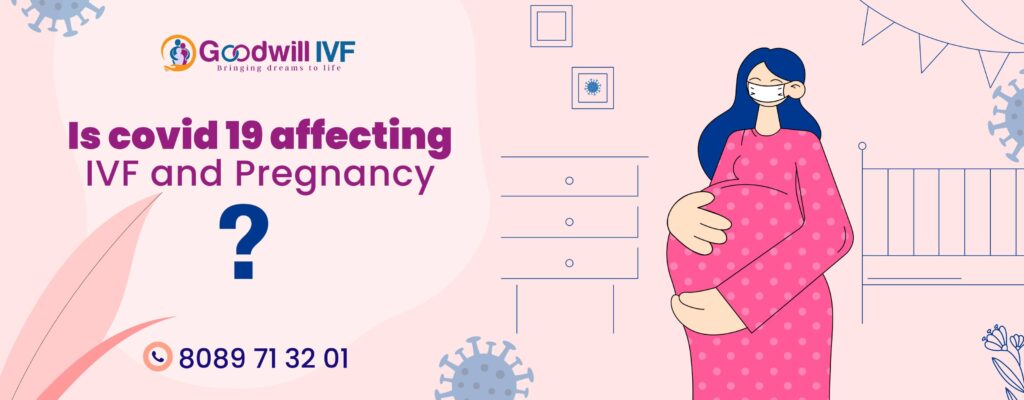Not being able to conceive a child, even after having timed and protected sex for an year is termed as infertility. Both men and women are affected by infertility and there are various factors responsible for it. Infertility has been on a rise in the past few decades and that is becoming a cause of great concern. One in six couples today is believed to be facing the problem of infertility. The number of infertility cases has shown a rapid increase, especially in women.
Causes of Infertility in women
Some of the factors which cause infertility in women are:
Ovulation disorders:
Infrequent ovulation or absence of ovulation causes infertility in most cases. Polycystic Ovarian Syndrome (PCOS), hypothalamic dysfunction (which affects the production of FSH and LH), premature ovarian failure, excessive production of prolactin etc. are some common ovulation disorders.
Damaged fallopian tubes:
Damaged or blocked fallopian tubes can lead to infertility in women as it prevents the sperm from getting the egg or blocks the passage of fertilized egg into the uterus.
Endometriosis:
Endometriosis is another prime cause of infertility. It occurs when the tissue that lines the uterus grows on other internal organs. The scarring caused by the removal of the extra tissue can block the fallopian tubes and keep the sperm and egg from uniting.
Uterine problems:
Benign polyps or tumors in the uterus can block fallopian tubes or prevent implantation. Birth abnormalities like unusually shaped uterus, cervical stenosis, etc. can also affect pregnancy.
In some cases, the cause of infertility is impossible to determine.
Risk Factors
The factors that have an important effect on a woman’s reproductive system and can also cause a higher risk of infertility are:
Age:
The quality and quantity of a woman’s eggs start to decline with age. Conception is more difficult in the mid-thirties and the risk of miscarriage increases.
Smoking and Drinking:
Smoking increases the risk of miscarriage and ectopic pregnancy. Alcohol consumption in excess is also believed to reduce fertility.
Lifestyle:
A sedentary lifestyle with a lot of stress and a poor diet is one of the major rising causes of infertility.
Stress and infertility:
Stress has become a part and parcel of the modern world. Physical and mental stress is aggravated by the fast pace of life, increased workload, irregular working hours, etc. Stress can lead to dangerous problems like an increased risk of cardiovascular diseases. Stress also affects the reproductive system of both men and women, the effect being much more conspicuous in women than in men.
Relation between working women and infertility
In today’s times, it has become all the more important to understand the relation between working women and infertility, as women work the same way as men now. Some of the major findings of the studies conducted all over the world, regarding the same are:
- Women today, on account of their work, are subjected to higher levels of mental stress in comparison to women of earlier times.
- Working women undergo even more stress, both physical and mental, because they tend to over-work. This results in hormonal changes in women. Estrogen levels, which are essential for reproduction, decrease and the levels of androgen or male hormones increase.
- Those women who are subjected to physical stress at work are even more affected, especially those who lift or move heavy objects. They have a lower number of antral follicles and eggs.
- Women who work in night shifts or rotational shifts have lower egg count and are at a higher risk of infertility.
- Working mothers due to the additional stress of managing family and professional life may experience the condition called secondary infertility (unable to conceive the second time).
- Improper nutrition and sedentary lifestyle are some secondary problems faced by working women. The consequences are obesity and weight gain which adds to the problem of infertility.
Working women are thus, definitely at a higher risk of infertility as compared to women of earlier times. However, the problem can be resolved to a great extent.
Managing fertility problems
Stress must be avoided at work, especially physical stress.
Stress must be managed by taking off time regularly.
Have a healthy and well-balanced diet.
Exercise regularly. Practice Yoga and meditation.
Do not make changes in your routine.
Avoid overworking.
Infertility in working women can be treated by medications and treatment, if the need arises.
As infertility cases are increasing worldwide, it becomes necessary to take proper precautions and get regular checkups and tests done.
At Goodwill IVF Treatment Center, we have the best team of experienced specialists who are well adept at treating infertility in women. Our Infertility Treatment Center has the most modern facilities and well-trained staff to ensure you get the best treatment and care for infertility and related problems. Goodwill offers the best PCOS treatment in Malappuram. We treat you best and fulfill your dreams.


